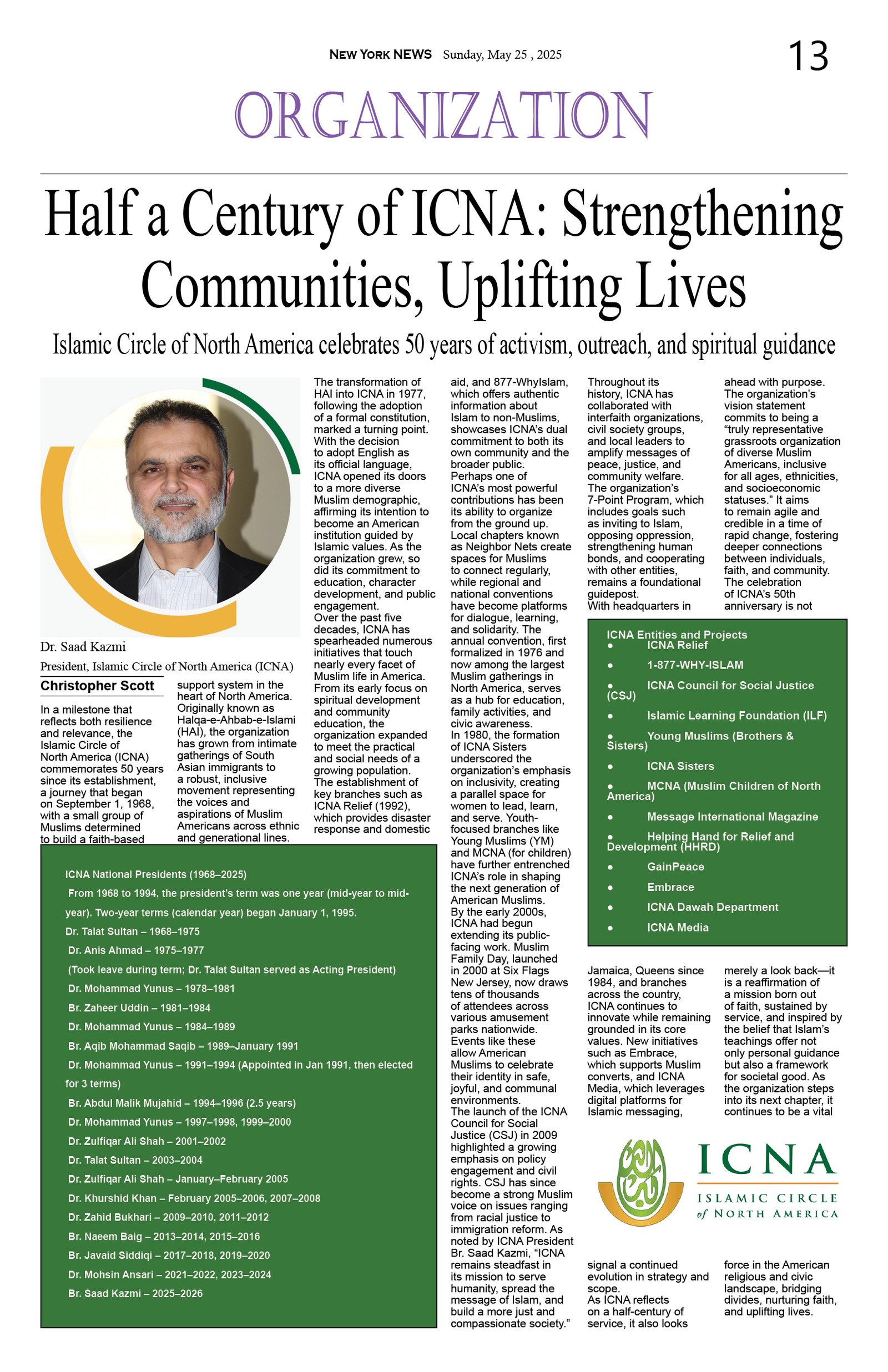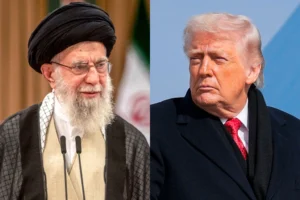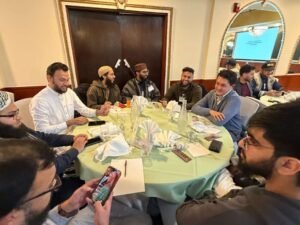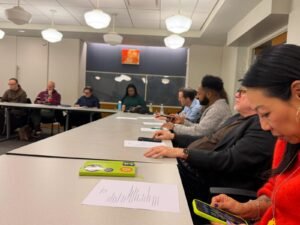Christopher Scott:
In a milestone that reflects both resilience and relevance, the Islamic Circle of North America (ICNA) commemorates 50 years since its establishment, a journey that began on September 1, 1968, with a small group of Muslims determined to build a faith-based support system in the heart of North America. Originally known as Halqa-e-Ahbab-e-Islami (HAI), the organization has grown from intimate gatherings of South Asian immigrants to a robust, inclusive movement representing the voices and aspirations of Muslim Americans across ethnic and generational lines.
The transformation of HAI into ICNA in 1977, following the adoption of a formal constitution, marked a turning point. With the decision to adopt English as its official language, ICNA opened its doors to a more diverse Muslim demographic, affirming its intention to become an American institution guided by Islamic values. As the organization grew, so did its commitment to education, character development, and public engagement.
Over the past five decades, ICNA has spearheaded numerous initiatives that touch nearly every facet of Muslim life in America. From its early focus on spiritual development and community education, the organization expanded to meet the practical and social needs of a growing population. The establishment of key branches such as ICNA Relief (1992), which provides disaster response and domestic aid, and 877-WhyIslam, which offers authentic information about Islam to non-Muslims, showcases ICNA’s dual commitment to both its own community and the broader public.
Perhaps one of ICNA’s most powerful contributions has been its ability to organize from the ground up. Local chapters known as Neighbor Nets create spaces for Muslims to connect regularly, while regional and national conventions have become platforms for dialogue, learning, and solidarity. The annual convention, first formalized in 1976 and now among the largest Muslim gatherings in North America, serves as a hub for education, family activities, and civic awareness.
In 1980, the formation of ICNA Sisters underscored the organization’s emphasis on inclusivity, creating a parallel space for women to lead, learn, and serve. Youth-focused branches like Young Muslims (YM) and MCNA (for children) have further entrenched ICNA’s role in shaping the next generation of American Muslims.
By the early 2000s, ICNA had begun extending its public-facing work. Muslim Family Day, launched in 2000 at Six Flags New Jersey, now draws tens of thousands of attendees across various amusement parks nationwide. Events like these allow American Muslims to celebrate their identity in safe, joyful, and communal environments.
The launch of the ICNA Council for Social Justice (CSJ) in 2009 highlighted a growing emphasis on policy engagement and civil rights. CSJ has since become a strong Muslim voice on issues ranging from racial justice to immigration reform. As noted by ICNA President Br. Saad Kazmi, “ICNA remains steadfast in its mission to serve humanity, spread the message of Islam, and build a more just and compassionate society.”
Throughout its history, ICNA has collaborated with interfaith organizations, civil society groups, and local leaders to amplify messages of peace, justice, and community welfare. The organization’s 7-Point Program, which includes goals such as inviting to Islam, opposing oppression, strengthening human bonds, and cooperating with other entities, remains a foundational guidepost.
With headquarters in Jamaica, Queens since 1984, and branches across the country, ICNA continues to innovate while remaining grounded in its core values. New initiatives such as Embrace, which supports Muslim converts, and ICNA Media, which leverages digital platforms for Islamic messaging, signal a continued evolution in strategy and scope.
As ICNA reflects on a half-century of service, it also looks ahead with purpose. The organization’s vision statement commits to being a “truly representative grassroots organization of diverse Muslim Americans, inclusive for all ages, ethnicities, and socioeconomic statuses.” It aims to remain agile and credible in a time of rapid change, fostering deeper connections between individuals, faith, and community.
The celebration of ICNA’s 50th anniversary is not merely a look back—it is a reaffirmation of a mission born out of faith, sustained by service, and inspired by the belief that Islam’s teachings offer not only personal guidance but also a framework for societal good. As the organization steps into its next chapter, it continues to be a vital force in the American religious and civic landscape, bridging divides, nurturing faith, and uplifting lives.
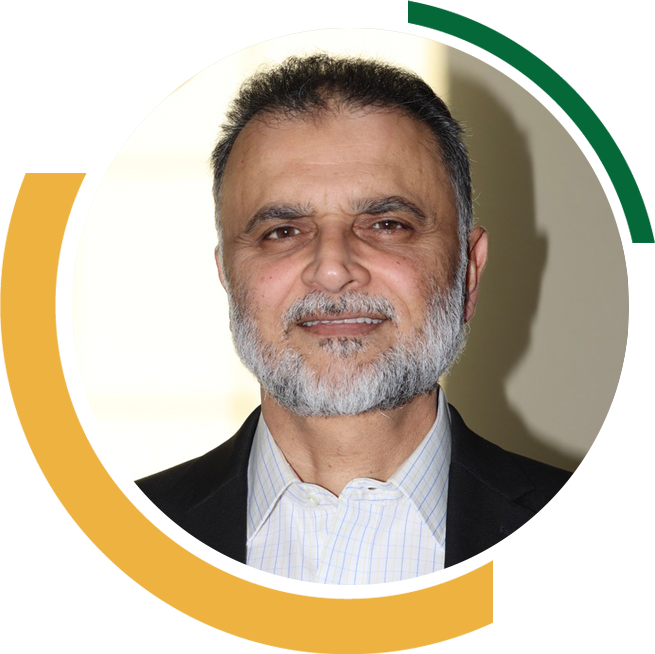
ICNA National Presidents (1968–2025) Dr. Talat Sultan – 1968–1975 |
ICNA Entities and Projects
|

For more blogs, visit nyn.press

